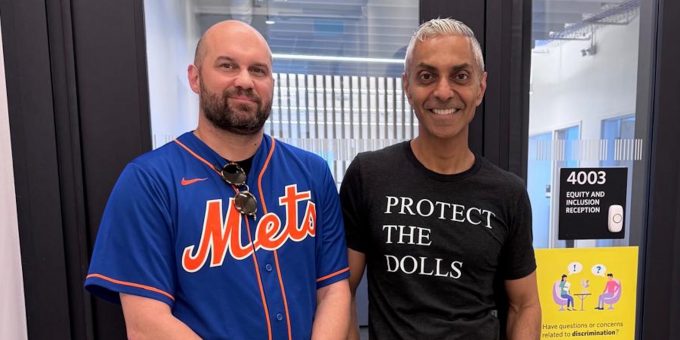
Photo by Fernando Garcia
Letter from the Editors: Spring 2025
Protect the dolls.
Inspired by the 1980s ballroom scene and popularized by fashion designer Conner Ives, this phrase calls on allies to challenge anti-trans discrimination and hate-motivated violence. Why? Because rights are being stripped away—from White House Executive Orders on “gender ideology extremism” to the U.K. Supreme Court ruling that a woman is someone born biologically female to Bill 137 in Saskatchewan, which restricts the ability of trans kids to determine their preferred names and pronouns.
This struggle comes in the context of a so-called war on woke. How do sociologists understand and explain the value of DEI programs? Our contributors in this issue’s special section examine its business case, importance for health care, and how DEI shapes scientific discovery. Together, they underscore what we lose by abandoning efforts toward diversity, equity, and inclusion.
In our previous issue, we promised conversations with former editors of the magazine, starting with Claude Fischer. Now it’s time to chat with Jim Jasper and Jeff Goodwin, who edited Contexts from 2005 to 2007, and Doug Hartmann and Chris Uggen, who carried the baton from 2007 to 2011. We asked both teams about their vision for the magazine, why it’s so crucial for our discipline to have a space like this, and how they think about all the Contexts editors’ shared ambition to reach audiences beyond the academy—to talk about society with society at large.
On that note, all the features in this issue make cutting-edge social research accessible to general readers. Canton Winer’s opening article engages asexuality, an identity embraced by people who experience little to no sexual attraction, and its place among other queer identities. Then, Maria Akchurin and Juanita Vivas Bastidas take us to Chicago’s “sacrifice zones,” where we meet the residents and environmental justice activists identifying historical patterns of racism and using the framework of “cumulative impacts” to spur policy change.
Another worrisome accumulation? Debt. Imagine finishing graduate school and facing down $200,000 in student loans. Scary, right? According to U.S. News & World Report, though, that’s the average for U.S. med school grads. William Burr, Judson Everitt, James Johnson, and Lillian Wynne Platten write about how all this fiscal fretting fuels provider shortages in the profession’s least lucrative specialties (pediatrics and primary care among them). Our final feature this issue investigates illness management and the ways legal conservatorships muddle our notions of coercion and care. Alex V. Barnard grapples with whether conservatorship is a carceral measure that should be abolished or a potentially life-saving measure in need of revision.
Throughout this issue, you’ll learn about striking sugarcane workers in Bogotá, mental maps that sustain urban segregation, the overdose crisis, and why birthright citizenship is fine as it is. Flip back a few pages to catch up on fresh sociology from the journals and then all the way to the back page for a reflection from Jan Stets on the importance of seeing and being seen.
Be sure to pause, too, for an essay that feels particularly poignant during Pride month. Earlier this year, the U.S. National Park Service, complying with Executive Order 14168—the one on, ahem, gender ideology extremism— removed all references to transgender and queer people in the guide text and website for the Stonewall National Monument in New York. At this landmark site for LGBTQ+ rights, that very acronym was slashed to “LGB.” This is erasure at its most literal, revision at its most vindictive. But Stonewall is Stonewall, activists are activists, and the protest signs once again punctuate the air at this historic corner. This time they declare, “We will not be erased.” Indeed.
From words on the page to bodies in the streets, let’s pull together to protect the dolls.
Amin Ghaziani and Seth Abrutyn,
University of British Columbia, Vancouver
